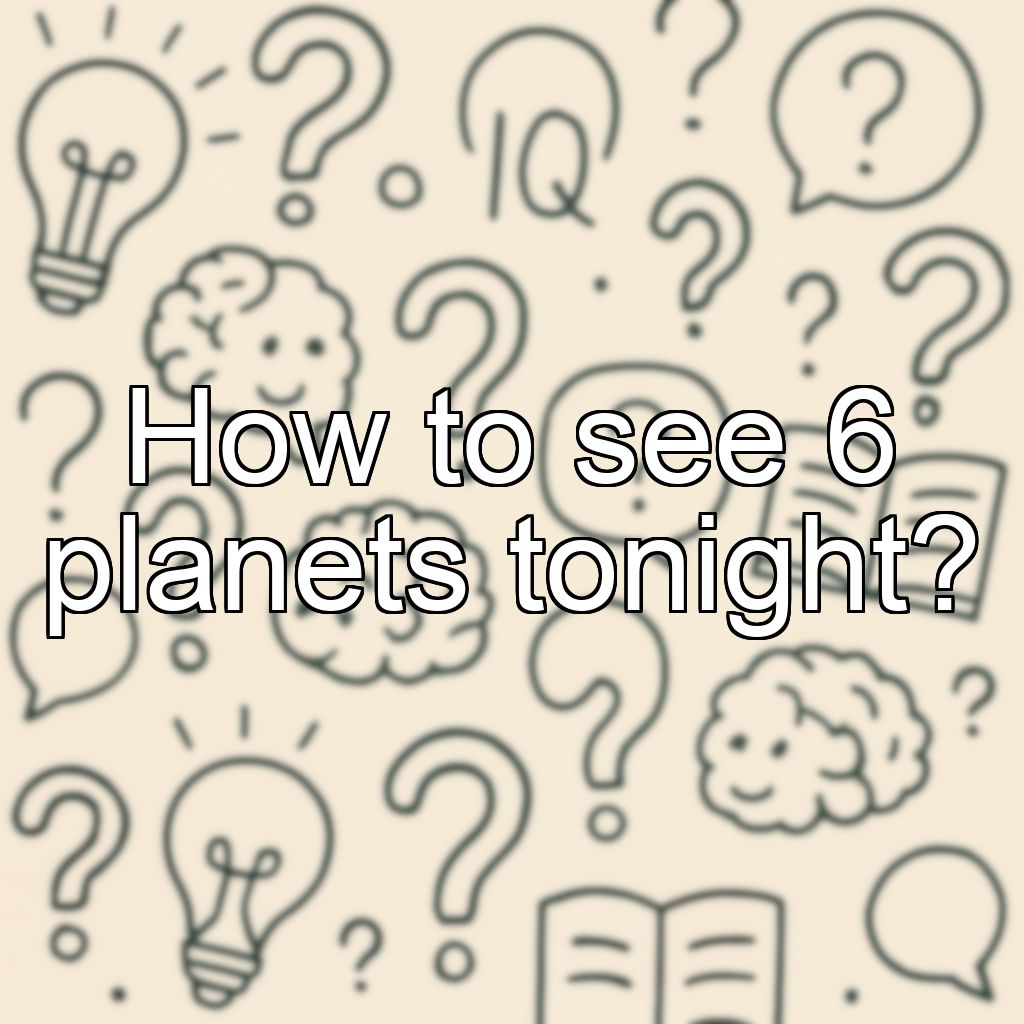How to see 6 planets tonight?

How to See 6 Planets Tonight
Observing six planets in a single night is a fascinating experience that requires some planning and suitable viewing conditions. The six planets commonly visible to the naked eye are Mercury, Venus, Mars, Jupiter, Saturn, and sometimes Uranus or Neptune under ideal conditions. Here are the steps to maximize your chances:
1. Check the Visibility and Positions
Use an astronomical app or planetarium software (such as Stellarium, SkyView, or Star Walk) to determine the current positions of the planets in your location. These tools provide real-time data on where to find each planet in the sky.
2. Know the Best Time
Planets are best observed during their opposition or elongation periods, when they are closest to Earth and visible for longer periods. Usually, planets are visible just after sunset or before sunrise, depending on their position.
3. Find a Suitable Viewing Location
Choose a dark, open area away from city lights. A clear, unobstructed view of the horizon is essential, especially for planets low in the sky.
4. Use Binoculars or a Telescope
While planets are visible to the naked eye, binoculars or a telescope can improve your view, revealing details like the rings of Saturn or the phases of Venus.
5. Observe Sequentially
Planets are spread across the sky; start with the one visible earliest in the evening or the latest in the morning. Patience and careful observation will help you spot all six if they are visible.
6. Be Aware of the Moon Phase
The moon's brightness can hinder your view of dimmer planets, so observing during a new moon or when the moon is less luminous improves visibility.
By following these steps and consulting real-time planetary charts, you can enhance your chances of seeing six planets tonight. Happy stargazing!